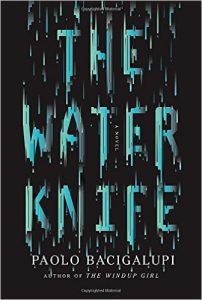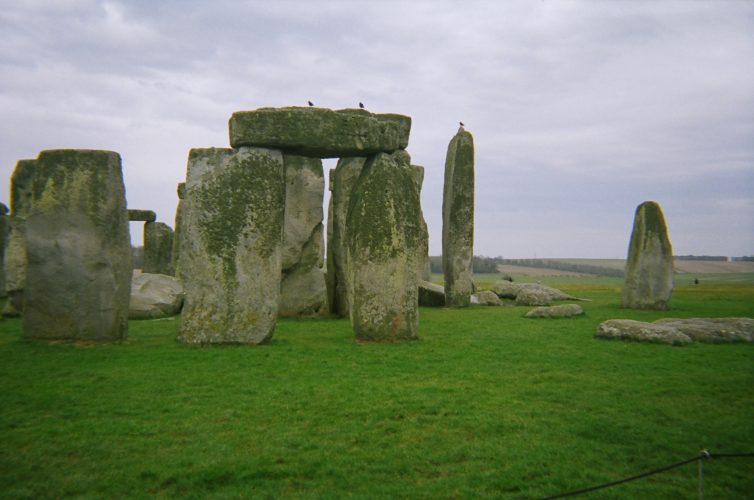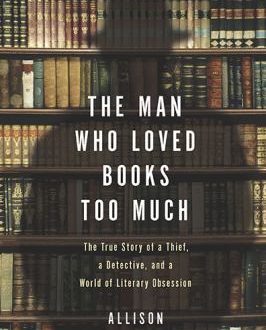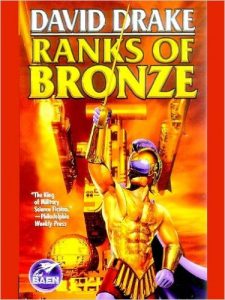
Book Review: The Water Knife by Paolo Bacigalupi
Back when I wrote my review of The First Law Trilogy by Joe Abercrombie, I said this:
Books don’t necessarily have to have happy endings for me to like them. If a book can make me think, if it can leave me in tears, those are good things. But I’ll be honest, I do like my stories with a little bit of hope at the end. I read for enjoyment. I don’t read horror for a reason- I don’t enjoy it. If you are not going to give me a happy ending, or at least a moment of hope (Children of Men is one of my favorite movies ever, though I don’t know that I will ever watch it again. It decidedly does not have a happy ending, but there is a sliver of hope that makes the whole journey worthwhile), your book needs to give me something else.
I bring this up because the first thing I want to say about The Water Knife is that it does not have a happy ending. I cannot say it has an unhappy ending either. It has an ambiguous ending.
On some level, ending on the ambiguous note was not so good for me, because it meant that I fell asleep thinking about it. I am pretty certain I dreamed about it, because every time I woke up during the night, my mind was right back there in the desert on the Arizona/Nevada border, with the characters, wondering what was going to happen next. And no, I do not want a sequel.
The Water Knife is set in a post-apocalyptic world, but one where the characters still think the apocalypse has not quite happened yet. The western United States has dried up. Everything is about water rights, especially to the Colorado River. California, Las Vegas, and Arizona are all fighting for (and willing to kill for) water rights.
The story is mostly set in Phoenix. Arizona is most definitely losing the fight for water, and the people there are desperate. We follow three main characters – Lucy, a Pulitzer prize winning journalist from the East Coast who has “gone native”; Maria, a refugee from Texas (which essentially no longer exists) stuck in Phoenix trying to make enough money to pay a coyote to her out of Arizona; and Angel, a “water knife” from Vegas, trying to make sure that no matter what happens, his boss, and Las Vegas, come out on top.
As I said earlier, if a book does not give me a happy ending, or even a bit of hope (and ambiguous or not, there is not a whole lot of hope at the end), it has to give me something else. In this case it was a supremely drawn world, imperfect characters who fit perfectly in their places, and world that our’s could easily become.
The Water Knife is firmly grounded in research. Throughout the book, a real non-fiction book, Cadillac Desert by Marc Reisner, is constantly mentioned. And during the American Dust Bowl, there really were state militias that patrolled the borders of the western states, trying to keep out “refugees” from the rest of the country.
The book is mostly about how terrible people can be to one another. At the same time, it is also about how good people can be to one another. The terrible is writ large while the good is just a few moments here and there, one person helping another out, even when it would be so much easier not to. It is moments of understanding and forgiveness, even as each person tries to do what they think is best, whether it be for themselves or their community.
The Water Knife does not have a happy ending. And that is good. Trying to give this story a happy ending would have rung false. And yet, giving it a completely down ending would have trivialized everything the characters had gone through to get to that point.
It ended as it needed to, not with the hope that the whole world would get better soon, but with the possibility that a couple of these basically decent people might live another day.



